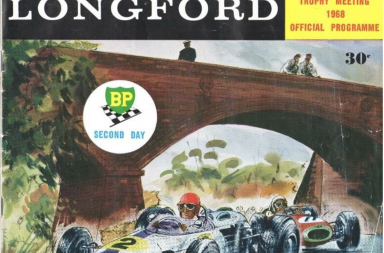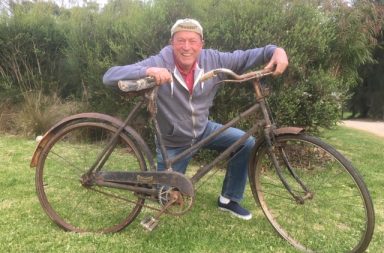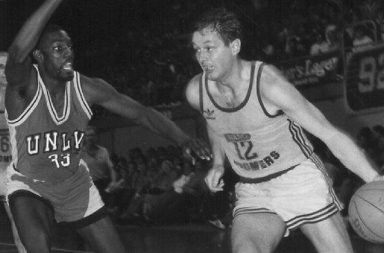Written 2004
In the male-dominated frontier of Coober Pedy, where men outnumber women three to one, no-one expected it would be the women who would dig the town out of its depression.
The struggling miners, disillusioned by the poor price of opal, have in recent years become even more socially isolated, casting gloom over this moonscape of dirt heaps and dugouts in the middle of nowhere.
The burrowers lost their only common ground, the men’s soccer competition, which folded because of dwindling numbers and ethnic tensions among the town’s 45 nationalities.
But, while many miners left, or became even more antisocial, it has taken a 28 year-old blonde from Melbourne’s eastern suburbs to revive the spirit of this ailing community.
Coober Pedy is no ladies town – there isn’t a creature comfort or blade of grass, and you have to drive six hours to what passes for civilization, Port Augusta.
The only females tend to be either young girls or miners’ wives, or tourists passing through the desert landscape where they filmed Mad Max, Beyond Thunderdome.
When Samantha Yates and two girlfriends came through Coober Pedy one evening four years ago, she took one look at the environmental disaster and vowed they’d be gone by breakfast.
She was on her way to Western Australia to make enough money to study theatre in England.
But she spotted a notice on a tavern window offering work on a Hollywood movie to be filmed around Coober Pedy, titled Red Planet and starring Val Kilmer.
The film crew doubted she would stay and declined to hire her.
But she got work as a waitress in the Greek restaurant while she waited for an audition with the WA Performing Arts Academy.
She rehearsed the role of Cleopatra by reciting her lines amidst the thousands of pyramid-like dirt heaps which surround the town.
The miners thought she was mad – not because she was quoting Shakespeare, but because she was risking death by strolling among the open mine shafts.
Coober Pedy’s ethos is “never walk backwards”, sound advice considering the number of people who’ve disappeared down any of the thousands of exposed shafts.
Sam didn’t get into the WA Academy and, instead of going to Perth, filled a vacant position in Coober Pedy, as manager of the town’s community newspaper.
“I had produced theatre before, so I thought I could produce a paper,” she reflected this week, three and a half years after she became the Times’ only full-time employee.
The Coober Pedy Regional Times was in disarray and the previous manager, also from Melbourne, had left in a hurry after only eight months.
At Christmas that year, when she went home to Melbourne to visit her family, a friend suggested she would end up marrying a miner.
“As if!” she scoffed.
When she returned to Coober Pedy to resume her job in the first week of January, the woman at the Post Office looked up from behind her desk and wondered aloud: “You’re back?
“We didn’t think we’d see you again.”
Even hard-bitten diggers, who scratch and noodle rocks in the desperate hope of finding a shimmering gemstone, usually flee Coober Pedy over summer, when the temperature can top 50 degrees in the water bag.
Even more stifling for this stranger in a strange land was the apathy.
When South Australia’s Regional Development Board sent a lecturer to Coober Pedy to conduct a workshop on “Finding, Selecting and Keeping Good Employees,” Sam went along to cover the workshop for the Times. No-one else turned up.
She conceded then that she’d never be able to change Coober Pedy, but she was determined the negativity wouldn’t stop her trying, nor would it blunt her enthusiasm.
Sam has thrived on the many challenges of producing the community paper and befriended some like-minded outsiders, including Nina Brown, a 24 year-old from Torquay who is working to help the town’s aboriginal population.
Last month Nina won a national environmental award for her volunteer work in Coober Pedy.
With a supportive community board and Sam’s management, The Times has undergone radical changes. It’s become a digitally-produced tabloid and circulation has grown to 1,600.
But it’s Sam’s refusal to “walk backwards” which has inspired the women to rejuvenate this men’s town.
Despite warnings that she was wasting her time, and that she would only get hurt, two years ago she began acting and drama lessons for the locals, and formed the district’s first theatre group.
They staged six short plays last year in the Serbian club, which they transformed into an underground theatre and are working on this year’s production.
She also formed a cover band called “Potch ‘n Colour”, which brightens up almost every function in Coober Pedy, performing for the traditional remuneration, free beer.
“Potch ‘n Colour” has been booked by the Lions Club to entertaining a visiting science expedition this weekend, but then lead singer Sam is in the Lions Club, too.
She has also been active in the rebirth of Coober Pedy’s drive-in.
The nearest picture theatre is six hours away, so last year a group of women repainted the kiosk of the disused drive-in, brought the 50 year-old projector back to life, and hooked up 28 speakers.
Unfortunately, the projector died 20 minutes into “My Big Fat Greek Wedding”, and audience members were left to amuse themselves – but the monthly movies have become a hit.
The drive-in, the theatre group, the newspaper, the band and her weekly radio show on Dusty Radio 104.5FM have sparked new enthusiasm in her adopted community – and the locals can thank Sam for a better Coober Pedy.



